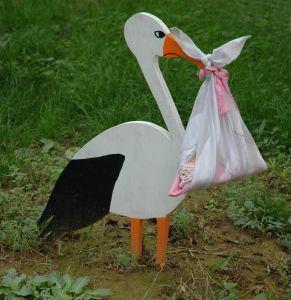Your children's questions about the biological processes of sex and reproduction can be scary. They can come at intimidating times, in intimidating places, or through intimidating language. You may find yourself in a position where you are fielding questions from children who aren't even yours.
Though you know how important it is to tackle the problem, getting the answers right may simply seem overwhelming to you. In fact, you may find it downright uncomfortable to contemplate. If you prepare yourself ahead of time, however, you will find that handling the issue of sex education for children sensitively and age-appropriately is never as difficult as you might imagine.
Always Answer the Question
When your child asks you a question be sure that whatever else your objective may be, you answer it fully and completely. If your child asks their question in an inappropriately public place, you may want to put them off until a later time. That is fine as long as you:
A) Address the question at the promised later time and appropriate location.
and
B) Address it relatively quickly. Don't wait for them to forget it in order to avoid the issue altogether.
Choose your words carefully so that you do not give your child the impression that the topic is shameful or unpleasant and give them a concrete time and place when a longer discussion can occur. If you put them off, they will continue to ask. If the behavior continues, they will simply learn to go elsewhere for information.
Do pay attention to what your child is actually asking you, though. You may hear “Where do babies come from?” and think it is time for the talk when your child really wants to know if they come from the grocery store, the doctor's office, or the hospital. Answering the correct question will save you a lot of distress and your child a lot of confusion.
Be Brief But Accurate
If your child is asking questions about sex and reproduction, it is very important to be honest and accurate with them. If you are not, then you risk teaching them the wrong lessons. So when a child asks where a baby grows in the body, tell them the uterus and not the tummy. Similarly, when they ask for the names of body parts, actually use proper names like penis and vagina rather than cutesy nicknames. While you are being honest and accurate, however, you also need to keep things age-appropriate.
The younger a child is, the briefer and more on-topic your explanations should be. That way, you can build a foundation for them, adding facts to the picture in bits and pieces as they age and become capable of coping with the information. As long as you are careful to appear comfortable and at ease with the topic, you will find that your child is as well. Ideally, when your child is old enough to need more extensive discussion of the topic, they will have no difficulty coming to you with problems or questions.
Make sure that your child understands that they should come to you immediately if anyone ever touches them inappropriately. It's a very uncomfortable topic to bring up, but it's one that's important to ensure your child stays safe. Unfortunately, there are some terrible people out there who may try to take advantage of your child. They need to know how to recognize inappropriate contact so they can alert you of it as soon as possible.
Accept Your Child's Development
As difficult or awkward as it may be, accepting that your growing child will or does have an interest in sex is important. Pretending or wishing that your child won't be interested in sex is not the right way to handle it. The education system is often lackluster when it comes to giving a proper sex education, so that's where you need to step in.
You don't need to ask your child if they are having or want to have sex to help them be safe about it. Educate them about the importance of safe sex, and make sure they know that they can always come to you if they have questions or problems. Don't make a big deal out of it if you find out your child is having sex, assuming they're doing so safely.
If you overreact or react inappropriately, you'll only push your child away. Teens are often rebellious, and simply being told not to have sex is not going to persuade them. Even if you aren't big on the idea of your teen having sex, it's your responsibility as a parent to prioritize their safety over your comfort. Treat them like they're able to make decisions about their own body.
Finally, make sure your child understands that sex is not purely something that can happen between a man and a woman. When you choose to expand on sex topics is up to you, but it's good for children to understand that there are other types of attraction than just that between a man and a woman. If you show your child that you're comfortable discussing these topics, they'll feel confident if they choose to come to you about feeling same-sex attraction later in life.
The image featured at the top of this post is ©buzzybee / freeimages – License / Original
